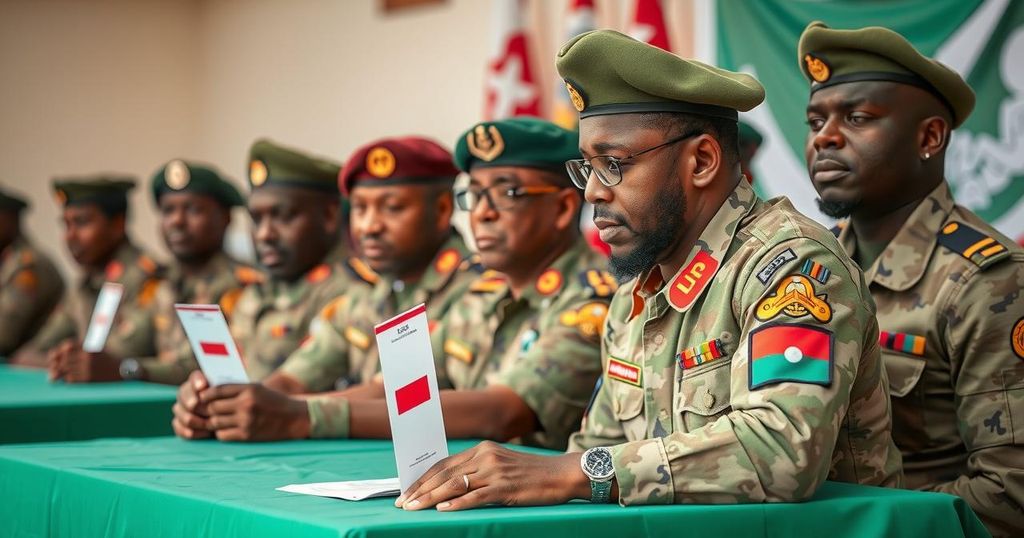Chad’s General Election: Voter Apathy Amid Calls for Boycott

Chad’s general election on Sunday faced significant voter apathy, with a reported 38 percent turnout due to opposition calls for a boycott. President Deby urged participation, but skepticism persisted among citizens regarding the legitimacy of the electoral process. Amidst concerns about climate change and regional violence, the government presented the elections as a pivotal step toward democracy following military rule. Accusations of electoral fraud loom, casting doubt on the stated objectives of these elections.
Chad held a general election on Sunday, a significant step, according to the government, in the journey towards ending military rule. However, voter turnout was notably low, with only 38 percent reported as of midday, reflecting the opposition’s calls for a boycott. Many opposition leaders, including Succes Masra of the Transformers party, asserted that the choice of candidates had already been predetermined, leading to widespread voter apathy. Despite President Mahamat Idriss Deby Itno urging citizens to vote, the opposition suggested that the election was merely a facade, with pre-fabricated results already set in electronic systems.
Amidst the election, many citizens expressed skepticism about the democratic process in Chad. Voter disillusionment was echoed by individuals like Herve Natouingan, who deemed voting useless, claiming that true democracy was lacking in the nation. Others, such as Patrice Lumumba Deoumoundou, participated in the hopes of bringing about significant change; yet, he lamented that nothing had been accomplished to date.
In anticipation of logistical challenges, troops and nomads were permitted to vote a day early. Reports from the election management agency highlighted a contrasting turnout narrative, stating record participation levels among these groups. Moreover, amidst the electoral process, community voices amplified concerns regarding living conditions, driven largely by climate change impacts affecting nomadic lifestyles.
The elections, monitored by international observers, occur against a backdrop of escalating violence from groups like Boko Haram and geopolitical tensions with former colonial ruler France. The government heralds this election as a pivotal moment towards transitioning to democracy after President Deby’s ascension in 2021, following his father’s lengthy regime. Yet, accusations of electoral fraud and manipulation continue to loom over the proceedings, challenging the legitimacy of the upcoming results.
The backdrop for this election is rooted in Chad’s recent history of governance under military rule, which commenced following the death of former President Idriss Déby in 2021. His son, Mahamat Idriss Déby Itno, assumed power through military decree and has been scrutinized for lacking genuine democratic processes. Recent calls for an electoral boycott from opposition parties have significantly impacted public engagement in voting, further complicating the military-led transition to democracy. This election is framed as a crucial step in cementing democratic governance in a nation struggling with socio-political instability.
In conclusion, the recent general elections in Chad symbolize a contentious attempt to transition from military rule to democracy. Despite government assertions about the elections’ significance, substantial voter skepticism and low turnout signify deep-rooted political disenchantment among the populace. The prevailing atmosphere of doubt regarding electoral integrity, compounded by calls for boycotts from opposition parties, illustrates the challenges faced in establishing a credible democratic framework. As Chad continues to grapple with its political identity, the outcomes of this election will play a crucial role in shaping its future governance.
Original Source: www.hudsonvalley360.com







